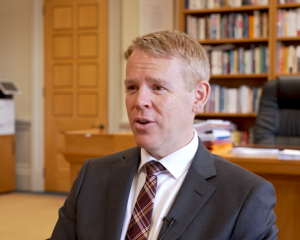
New Zealand has over six billion tonnes of lignite deposits, mostly in Southland, but the political party's spokesman on lignite, Gareth Hughes, said that the "dirty coal" would not only undermine the nation's "clean, green" brand, but also the potential of a sustainable economy for the next generations.
State-owned miner Solid Energy has said that it will build and operate a demonstration briquetting plant at the former Mataura mine site, then make a decision about the viability of a commercial plant once it has successfully produced low-moisture, higher-energy briquettes.
The proposed plant, would be capable of producing up to 100,000 tonnes of briquettes a year from Southland lignite for export and commercial use, is a joint venture with American-based GTL Energy, and one of three lignite conversion projects proposed by Solid Energy in Southland.
But Mr Hughes called on the Government to listen to an American climate scientist, Dr James Hansen, and instead invest in "clean" energy.
"As Hansen has made clear, for future generation's sake, we must keep the coal in the hole," he said.
Another lobbyist critical of the project, Coal Action Network Aotearoa, said that if all the planned lignite projects went ahead they will put seven to eight billion tonnes of carbon dioxide into the atmosphere.
Dr Hansen said this week that the nation could not afford to mine its huge deposits of lignite.
Sales of the world's easily-mined oil and gas from deposits in the Middle East and Russia would lift carbon dioxide emissions to the maximum that humans could put into the atmosphere and still hope to stabilise climate change by the end of the century.
"What we're going to have to do is leave the rest of the coal -- most of the coal -- and the tar sands and the oil shales in the ground," he told NZPA.
"The lignite is a good example of what doesn't make sense. It's really a very dirty fuel.
"It's just not worth it -- any price on carbon at all, and removal of subsidies on mining, means people would just leave it in the ground and move on to clean energy and energy efficiency".
To a suggestion that using the lignite for a coal-to-liquid conversion plant which captured the carbon from the gasified coal, Dr Hansen said that markets would decide whether that made economic sense.
"Once you put a price on carbon, which is gradually rising, then that sort of thing is probably going to be uncompetitive with other ways of getting the energy."
"If we do put a rising price on carbon emissions, then we're going to come up with other things: algae-based fuels, more effective solar panels and maybe advanced nuclear power."












